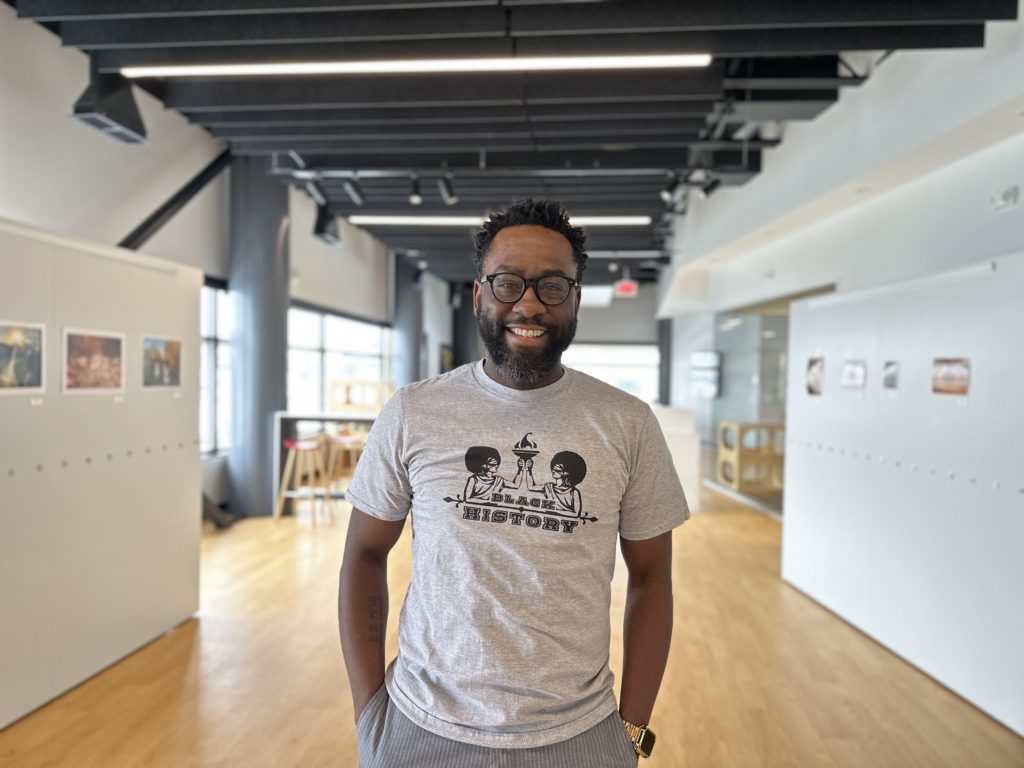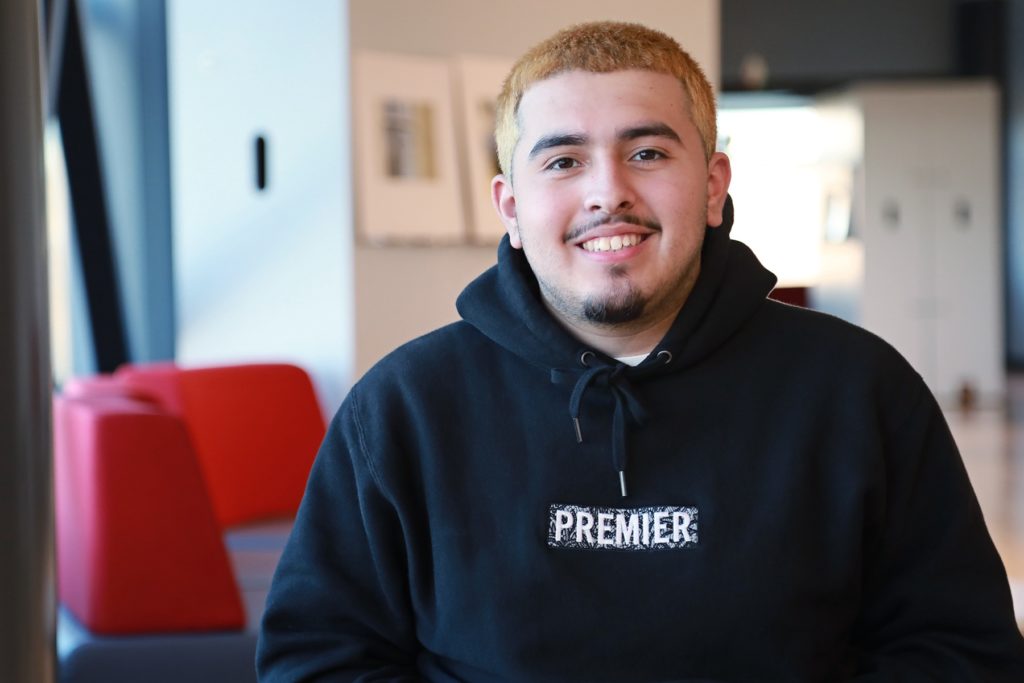Wednesday, February 22, 2023
WMCAT President + CEO Jamon Alexander reflects during Black History Month on the power and burden of narrative, the brilliance of Black lived experience, and WMCAT’s work as a response to inequity.

Black History Month is an opportunity for us to learn about, celebrate, and elevate the legacy of Black Americans. As with any history, how you or your community engage this month and what you believe to be Black History is shaped by narrative.
Part of the experience of being a Black American is hearing a dominant narrative that does not support, let alone leave space for, the reality of our lived experiences. This isn’t isolated to history or Black History Month; this is our Black present and our Black future. It’s happening right now, in our community.
Grand Rapids, Michigan has been recognized as the best place to live, work, and raise a family. And yet, we’ve been rated among the worst cities for Black people economically, with Black residents more than twice as likely as white residents to be unemployed.
The best place to live – unless you’re a Black resident.
The best place to work – unless you’re a Black employee.
The best place to raise a family – unless you’re raising a Black family.
We prefer the single story that results in a “best of” headline, and don’t do well with a complex, nuanced, honest narrative. The stark disparities in our city are real, as are the beauty and brilliance that exist in our Black neighborhoods.
I grew up on the southeast side of Grand Rapids, where my neighborhood raised and shaped me. It wasn’t until I moved to my college dorm, just 18 miles from my high school, that I realized Grand Rapids wasn’t a predominantly Black area. That transition was my first experience with environments not designed for me, and a startling realization that my neighborhood was designed for me with the intent to segregate, control, and extract.
As I started my career, I was again forced to navigate spaces and norms that were foreign to me. The dominant narrative around what it means to be a successful, professional leader did not hold space for me; it didn’t hold space for the incredible talent of the people I grew up with, for the fullness of my personal story, or for any mention of systems and the way they are designed to work against people like me. I lost a part of myself.
So, I began to build a new narrative for myself. I examined my story and I uncovered core values and skills that lived experience taught me: emotional and social intelligence, commitment to community, a self-awareness required for survival. All things that I use today, despite dominant culture’s devaluing of how I learned those things.
This is such an important part of our work at the West Michigan Center for Arts + Technology.
And as president + CEO of WMCAT, I lead our work to provide access to opportunity because of – not in spite of – the neighborhood that raised me. Through visual arts and tech engagement with young people, workforce development with adults, and a human-centered design social enterprise, WMCAT’s work and mission are a response to the inequitable legacy of policy and narrative that burden us. We are honoring our students’ lived experience, elevating their voices, building social capital, and connecting families to income security.
The tension I experience in this work and when approaching our students is the same tension I have felt for myself as a Black American time and time again. We are not responsible for creating the circumstances we find ourselves in (systemic disparities), yet the burden of solutions falls on us as if we were (individual responsibility).
This is where the individual and systemic intersect; where the narrative gets messy and no longer supports the headline-worthy version of community we like to tell. This is where we see one of the many impossible things about being a Black American: the narrative never works in our favor, but the burden of the narrative is always ours to carry.
As you move forward from Black History Month:
- Hold that tension that we live with. Allow it to change the tone of your interactions, the trust in your relationships, and quality of solutions you generate in the space you occupy.
- Honor and elevate the incredible things that are inherent to our very existence; and the skills gained out of necessity and built from forced resilience. Help us see it, own it, and value it by doing so yourselves.
- Own your proximity to systems you may believe are out of reach or someone else’s responsibility to disrupt.
- Engage with history as a way of understanding our present; and feel the full range of emotions that comes with that experience. Consume the perspectives of Black leaders and authors — which are powerful enough to prompt calls for book bans across our nation.
- Resist the temptation to oversimplify the narratives of change for us. We are deserving of space, nuance, and possibility.
Your influence and your power are in your relationships, in the discourse, and in shaping a better narrative. This is the stuff that’s so hard to measure, but that directly impacts policy decisions, that decides who in our community deserves quality of life, that either prevents or propels the future we’re working toward. As we reflect on Black history, let’s make sure we’re designing a future that not only meets the needs of Black people – but celebrates us.



